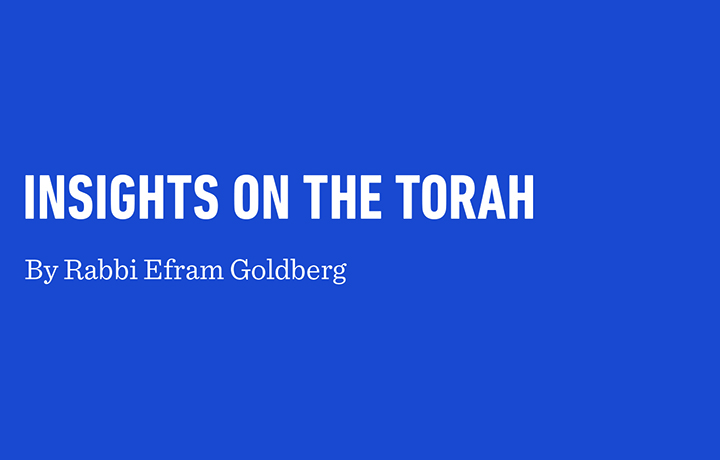The Triumph Of Israel And The Spirit Of The Jewish People
oldBy Rabbi Efrem Goldberg
Israelis, Jews, and decent people around the world breathed a sigh of relief and were filled with euphoria at the news that the spectacular American military under the leadership of President Donald Trump bombed and obliterated Iran’s nuclear program. As of now, the 12-day war with Iran has reached a ceasefire, with a stunning Israeli military victory, one that experts already say surpasses the Six-Day War. We would all be remiss if we didn’t follow the example of President Trump and Prime Minister Netanyahu, who both publicly and proudly thanked Hashem for the success of their efforts.
It is truly extraordinary that for nearly fifty years, an evil regime, the world’s largest state sponsor of terror, has wreaked havoc, murdered innocent Americans and Israelis, and threatened its Arab neighbors. The danger and threat to the world of a nuclear Iran has been articulated by the last five American presidents and countless world leaders.
History will show that President Trump and the United States didn’t just talk about eliminating that threat, they acted. But the U.S., the world’s greatest superpower, didn’t do it alone, they had the help of only one other country. And just by glancing at the world’s most prominent nations, you would never guess that the other country that not only assisted the U.S., but strategized this epic battle was smaller than the State of New Jersey, is only 77 years old, and has a population of just 10 million.
I got goosebumps when President Trump thanked Israel: “I want to thank and congratulate Prime Minister Bibi Netanyahu. We worked as a team like perhaps no team has ever worked before, and we’ve gone a long way to erasing this horrible threat to Israel. I want to thank the Israeli military for the wonderful job they’ve done.”
The role and contribution of the State of Israel in protecting the world and keeping it safe is nothing short of a Kiddush Hashem, a fulfillment of the Jewish people’s mission in the world.
I was sitting at a beautiful chuppah on Sunday, thinking about and reflecting on this achievement. The seventh berachah was recited and the chuppah was about to conclude, but instead of turning to the singing of Im Eshkachech, we were all invited to rise as something else was sung first, the Misheberach for Tzahal, the prayer for the IDF. I have attended dozens of weddings since October 7, and at every one of them, a prayer for our brothers and sisters in Israel and for the heroic and courageous members of the IDF was included, sometimes as the IDF prayer and other times as Tehillim.
As we all stood and focused on the heartfelt tefillah, a thought occurred to me. In America’s wars, in Afghanistan, Iraq, and elsewhere, has any American wedding included a prayer for the American military? Were the weddings of any Americans paused to pray for American troops? Unless an immediate family member of the bride or groom was serving in active duty, I can’t imagine a prayer being included, even right here in America. And yet, for the last twenty months, around the world, thousands of miles from Israel, Jews everywhere have refused to celebrate their simchas without pausing to pray for the troops of the IDF. The Jewish people are unique in this way. Wherever we are around the world, we feel connected, and the wellbeing is paramount and intertwined with our own.
In several places (Yevamos 61a, Bava Metzia 114b, Kerisus 6b), the Gemara says, “You, the Jewish people are called “Adam,” but the nations of the world are not called Adam.” Read simply, it sounds like a terribly prejudiced and biased statement.
Rabbi Frand shares a story that offers a deeper understanding. In 1912 in Russia, Mendel Beilis was accused of killing a Christian child and using his blood to bake matzahs. This slander or variations of it were unfortunately prevalent in Europe for many years. They were known as blood libels. Beilis’ lawyer was afraid that to buttress their case, the accusers would make the argument that Jews considered non-Jews less than human. He was, in fact, afraid that they would cite the above-quoted Talmudic reference to prove this very point.
The lawyer therefore visited the Chortkover Rebbe and asked him how he could respond if the opposing lawyers would throw that Gemara at him. The Rebbe said as follows: If an Italian was seized and put on trial, we would not witness a scenario where all Italians were congregating in their churches to pray for this one Italian man. The same can be said about the French for a generic Frenchman, and so too about all the other nations. However, when one Jew is seized and put on trial, the solidarity that Jews have toward each other will make every Jew throughout the world stop and pray for the welfare of that other Jew.
This is how the Chortkover Rebbe explained Chazal’s statement that “You are called Adom.” The Hebrew language is extremely precise in terms of the different connotations of apparent synonyms. Other words for man have a singular and a plural, i.e., Ish and Anashim, Gever and Gevarim. But the word “Adam” is the same whether referring to one or many. The singular term “Adam” fits the Jews. All Jews are considered as a single entity. There is no dichotomy. We are all in this together. The reason why the word “Adam” is employed when referring to Jews is because this is the only term for humanity that has no plural and the Jewish people are a singular people.
This is not a racist or bigoted interpretation. It is a unique attribute of the Jewish people that has been demonstrated time and time again in ancient times and we are experiencing it right now. If one Jew is held hostage, Jews around the world feel the pain and storm the heavens. When heroic soldiers of the IDF are fighting, Jewish weddings around the world are interrupted with a prayer on their behalf.
With Israel’s victory against Iran, we hope and pray that Hamas surrenders, releases the hostages, and the Jewish people around the world can live with the peace and tranquility we deserve. But until they do, we will always feel a sense of responsibility for each other, and a sense of oneness for each other. n
Rabbi Efrem Goldberg is the Senior Rabbi of the Boca Raton Synagogue (BRS), a rapidly-growing congregation of over 850 families and over 1000 children in Boca Raton, Florida.













